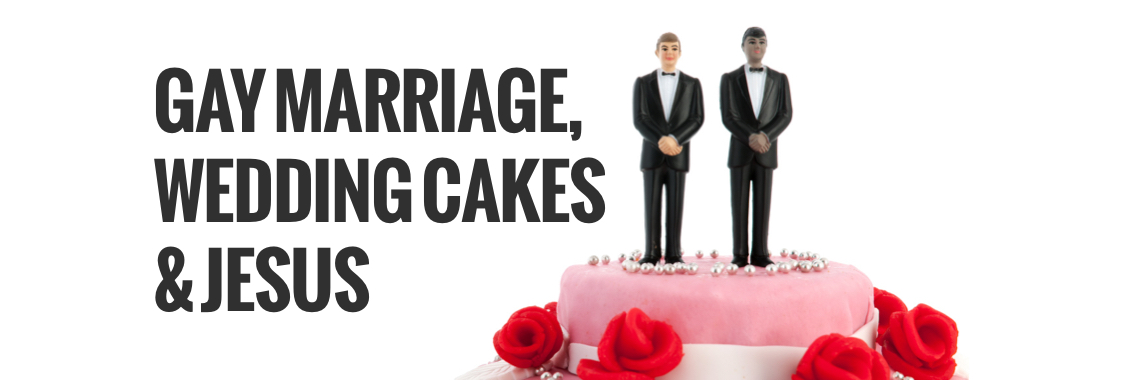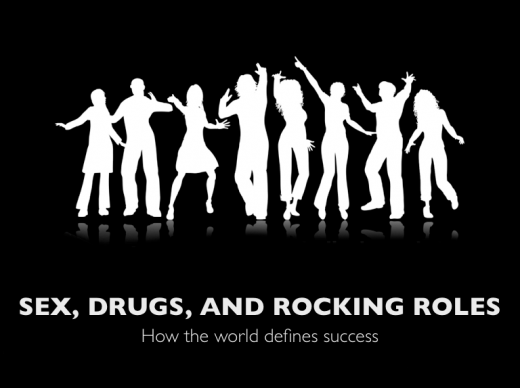
It doesn’t take a rocket scientist, or even a political scientist, to anticipate that Australia will make changes to its laws in the near future to recognise gay marriages. The Labor Party is making noises about moving away from allowing a conscience vote on the issue (even if they’re currently maintaining the conscience vote status quo), the Liberal Party is still a while off moving away from their party line on the issue — but the mood is shifting, partly because it has shifted elsewhere, amongst our international friends.
It seems inevitable.
Which presents a host of challenges to Christians.
The Marriage Mess
We haven’t covered ourselves in glory in the political debate. We’ve bombed it. We’ve messed it up. This is one of the things the church gets wrong about same sex marriage. And marriage in general.
We’re not great at listening to, or understanding those we disagree with in this debate. Especially those people who want gay marriage because they want to be part of a gay marriage. We don’t really hear what they’re asking for, or why they desire it, before telling them that they can’t have it because we know best (often because the God they don’t believe in knows best).
We’ve tended to hold up signs, send petitions, get angry, people have promised on our behalf that our votes as Christians will be decided on this issue, and this issue alone (and this has been true for some of us).
We’ve tended to assume that Christian morality makes sense to a non-Christian world (despite what I think are some pretty clear things in the Bible that speak against this being possible, like Romans 1, which suggests people who reject God can’t possibly understand God’s view of the world (including sex), and 1 Corinthians 5, which calls us not to judge those outside the church as though they should be behaving like those inside the church – and also to behave differently to the world, which won’t work if we all behave the same…).
We’ve failed to listen to, or accommodate, the desires of our gay neighbours because we’ve essentially argued that listening to or accommodating our gay neighbours will damage us and heterosexual marriage, as though that institution is in a pristine state, undamaged by human sinfulness.
Marriage is a mess. Heterosexual marriage is a mess. Even though God made it a good thing, we, humanity, trashed it.
Our selfish hearts damage every institution and culture we build, we’ve — whether inside the Church or outside it — turned marriage into a modern day tower of Babel. A bridge to God. Our stairway to heaven. Without understanding that its only having our hearts fixed by God through the Holy Spirit, and its only when we follow the pattern of life demonstrated in Jesus, that we have any ability to do anything good.
There are, I’m sure, good arguments against gay marriage. But I don’t think they’re arguments that will be all that persuasive to people who don’t acknowledge a creator — or to people who think that everything we observe in this world must be as God made it to be, therefore good. As Christians we believe God made marriage as a committed one flesh relationship between people of the opposite sex, and the ideal family unit involves parents who are married. The problem with defending this ideal is just how clear it is that the world isn’t ideal, and that none of our opposite sex marriages live up to God’s ideal given the selfishness and brokenness of the people involved. This is true of my marriage. If you’re married and it’s not true of yours then I’d love to know how you stopped being sinful. It’s funny that so much of our marriage counselling involves dealing with family of origin stuff, it’s a little acknowledgment to the idea that the source of mess in our marriages is often hereditary, and the result of bringing the functions and dysfunctions of two different families together (and those two different families brought together the functions and dysfunctions of two other different families, and so on, back up the line).
Marriage in this world is a mess. Jesus, when he talks about marriage in Matthew 19, says divorce is a concession God gave us in the Old Testament because of our hard hearts. Our hearts are messy. The way we talk about marriage in this debate makes it sound like an ideal. The way people arguing for gay marriage speak about what marriage robs them of also makes it sound like an ideal. The problem, for Christians, with looking at created things like ideals, like the place that we’ll find true satisfaction or completion as people, is that there sometimes doesn’t seem like a lot of difference between ideals and idols. The problem is that when we defend marriage because of the ideal we do it in a way that is detached from the broken reality. We talk about marriage and children in a way that alienates single parent families. We talk about marriage and its fundamental goodness and the bedrock role it plays in our society in a way that alienates single people who want to be married, or who have chosen not to be married. The world is not an ideal place. That’s observationally true, and theologically true. The whole world has been broken by our collective decision to reject God. This is the problem with arguments from nature — it’s never quite clear which nature we’re arguing from. And even when we’re arguing from creation-as-God’s-creation, if we’re not careful we start defending a created thing, passionately fighting for it, without reference to the creator — and without thinking about how our defence might be relevant to people who don’t even acknowledge the existence of the creator.
The created purpose of marriage, just like the created purpose of humanity, is to reflect the nature of God. The eternal self-giving love of the persons of the Trinity. For Christians, the purpose of marriage — whether we’re married, or not married — is to reflect the nature of our relationship with God through the sacrificial love of Jesus. For married people this means loving each other, and others, the way Jesus loved. For the unmarried this means showing that our real, eternal, satisfaction comes from this relationship. Of course this is easy for me to say as a married guy, and the reality of unmarried life in this world can be hard and lonely. It shouldn’t be. If Christian community was what it is meant to be. But it is. But our relationships are a mess because we’re messy people. We’ve actually made the mess bigger by loading marriage up with expectations it can’t bear — marriage won’t satisfy all your longings, it won’t fix your brokenness, it won’t complete you, it won’t get you out of the mess. If we suggest anything else, if we speak in a way that raises marriage above its station and suggests it will do any of these things (though marriage is good), we’re compounding the felt needs of unmarried people with a bunch of nonsense ideals. If we say “marriage completes you” or “marriage satisfies” or even “marriage will fix you” and then some people can’t get married, and we tell some people they can’t marry, then we’re making a bigger mess of an already messy world.
We’re going to feel the painful results of this mess. It looks like the result of our failure to make a clear distinction between what we think as Christians and what we should expect the world to think, is that victory for the other side doesn’t look like establishing the church’s ability to define marriage as it sees fit, according to its conscience, but for the church to be brought into lockstep with the world. While we hear that nobody will be forced to conduct gay marriages if its against their religious convictions, we’ve heard that elsewhere, and it has turned out just to be the next battlefield in this war. And regardless of what happens in the church, in terms of recognition of gay marriage, it seems that Christians operating in the world are going to face some big challenges.
On wedding cakes
There have been some big, public, lawsuits in the US revolving around Christians who work as bakers who don’t want to bake cakes for gay weddings. I guess I can understand the rationale behind a decision not to bake a gay wedding cake, and part of me wants people to be free to exercise their conscience when it comes to how they run their business, and for the market to decide if that is a legitimate way of doing business. I’m not opposed to women’s only gyms.
Eternity, the magazine thing run by Australia’s Bible Society asked some Christians from Australia to answer the question: “would you bake a gay wedding cake,” there’s some good stuff there.
If I was a baker, I’d cook the cake. Perhaps especially if the person asking was asking because they knew I was a Christian and they wanted to be able to sue me. I think this is probably what Jesus is talking about when he says “turn the other cheek,” I think it’s what it looks like to love someone who is acting as though they are your enemy (although that might also look like lovingly declining the request to bake the cake and being sued, there’s a classy way to do that). And if there’s no malicious intent involved from the person ordering the cake, I think it’s just the reality of life and love in a messy world. I’m not going to say no to my gay neighbours if they ask me to come and help them lift something heavy because they’re gay, why would I, if making cakes was my business, not make them a cake?
I think this is what it looks like to take Peter’s words in 1 Peter 2, and Paul’s words in Romans 12-13, on board in this debate. But I appreciate that this is ultimately a question of conscience, and other people might reach different conclusions.
But you are a chosen people, a royal priesthood, a holy nation, God’s special possession, that you may declare the praises of him who called you out of darkness into his wonderful light. 1Once you were not a people, but now you are the people of God;once you had not received mercy, but now you have received mercy.
Dear friends, I urge you, as foreigners and exiles, to abstain from sinful desires, which wage war against your soul. Live such good lives among the pagans that, though they accuse you of doing wrong, they may see your good deeds and glorify God on the day he visits us.
Submit yourselves for the Lord’s sake to every human authority: whether to the emperor, as the supreme authority, or to governors, who are sent by him to punish those who do wrong and to commend those who do right. For it is God’s will that by doing good you should silence the ignorant talk of foolish people. Live as free people,but do not use your freedom as a cover-up for evil; live as God’s slaves. Show proper respect to everyone, love the family of believers, fear God, honour the emperor. — 1 Peter 2
Love must be sincere. Hate what is evil; cling to what is good. Be devoted to one another in love. Honour one another above yourselves. Never be lacking in zeal, but keep your spiritual fervor, serving the Lord. Be joyful in hope, patient in affliction, faithful in prayer. Share with the Lord’s people who are in need. Practice hospitality.
Bless those who persecute you; bless and do not curse. Rejoice with those who rejoice; mourn with those who mourn. Live in harmony with one another. Do not be proud, but be willing to associate with people of low position. Do not be conceited.
Do not repay anyone evil for evil. Be careful to do what is right in the eyes of everyone. If it is possible, as far as it depends on you, live at peace with everyone. Do not take revenge, my dear friends, but leave room for God’s wrath, for it is written: “It is mine to avenge; I will repay,” says the Lord. On the contrary:
“If your enemy is hungry, feed him;
if he is thirsty, give him something to drink.
In doing this, you will heap burning coals on his head.”Do not be overcome by evil, but overcome evil with good.
Let everyone be subject to the governing authorities, for there is no authority except that which God has established. The authorities that exist have been established by God. Consequently, whoever rebels against the authority is rebelling against what God has instituted, and those who do so will bring judgment on themselves. For rulers hold no terror for those who do right, but for those who do wrong. Do you want to be free from fear of the one in authority? Then do what is right and you will be commended. For the one in authority is God’s servant for your good. But if you do wrong, be afraid, for rulers do not bear the sword for no reason. They are God’s servants, agents of wrath to bring punishment on the wrongdoer. Therefore, it is necessary to submit to the authorities, not only because of possible punishment but also as a matter of conscience. — Romans 12-13
Practice hospitality— this doesn’t just mean put on dinner parties for your friends, but use what you have for the sake of everyone.
If your enemy is hungry, feed him wedding cake.
If you think gay marriage is evil, overcome it with good.
It’s clear from the example of Jesus, from Paul, and from the early church that submitting to governments does not mean total obedience to their orders, but acknowledging their right to order certain things and willingly facing the consequences if you choose to disobey.
This Roman Emperor the church is called to submit to is a descendant of the Roman emperor whose authority was used to put Jesus to death. The emperors immediately after Jesus don’t get more godly (until a few hundred years later), they get worse. Paul even uses his arrest, and his trials described in the book of Acts to get closer and closer to Caesar in order, I think, to preach the Gospel to him. He’s prepared to be put on trial for his faith. He’s prepared to be killed for his faith. Because he hopes this will give him an opportunity to preach to those in authority – he does this with his jailers, with soldiers, with governors, with kings, and in Philippians his references to Caesar’s household suggest he gets pretty close to the heart of the empire.
On weddings
I’m not a baker of cakes. But I am a registered marriage celebrant because I’m an ordained minister of the Presbyterian Church of Queensland.
The Presbyterian Church in Australia, in its various State Assemblies, will be, in various ways, wrestling with this paper written by Campbell Markham, a Presbyterian Minister in Tasmania. Campbell’s argument, in short, is that if gay marriage becomes a legal construct in Australia, the Presbyterian Church should withdraw from its involvement with the government’s approach to marriage. This means handing in our right to conduct marriages, simultaneously acting as both civil and religious celebrants.
“And so what should our ministers do if marriage is redefined to embrace the evils of same-sex marriage? The survey showed that most intend to retain their registration and go on marrying people “as normal”, so long as they are not compelled to “marry” same-sex couples. They draw a line not at the point of redefinition, but at the point of compulsion…
Christians must not only not commit evil, we must not even associate with evil. If a redefined Marriage Act represents the legitimisation of the evils of homosexual practice, same-sex parenting, and third-party donor surrogacy, then as a Christian I will want nothing to do with it, and will separate myself by resigning my celebrant’s registration…
How then will I marry people? In many nations, such as Singapore and France, Christian couples register their union with a civil servant for legal purposes, and then get married by a minister in a worship service. This is what I intend to do if the Marriage Act is changed. I would allow the couple (Christian or not) to register at a government office, and then I would conduct a Christian wedding service. I should add that I would not require a couple register at a civil office. For they may well feel that by doing so too are endorsing the Marriage Act and the evils it will represent. I would leave this decision up to them. In any case, I am urging my brother ministers to form the same intention to resign from the Act if it is redefined. Like baptism, we can use our own rites, keep our own records, and issue our own certificates.”
Apart from the question of how we would handle divorce cases if we went down this road of running our own registry, I think this is the wrong move, and I’ll be arguing against it — in Queensland, where I’m on the committee that will interact with this issue, but further afield, in part, I guess, by publishing this counter argument. I think the call to separate ourselves from sexual immorality is within the boundaries of the church (1 Cor 5), and I think we’re called to promote what is good for our neighbours because we’re called to love them. And marriage is good. That’s why the church has traditionally performed this function for people outside the church.
As Christians, I think the Bible calls us to believe that God created marriage as a good gift, and that he didn’t limit it just to the church or Christians. Marriage is part of how all people bear God’s image. It’s not just Israel who are given life in order to represent the living God. It’s not just Israel who have the capacity to love in a way that reflects God’s love. They do have a particular calling to do these things in connection with God as a “kingdom of priests,” but all humans have the capacity to bear God’s image, and do bear it in certain ways even if our hearts are turned to idols. I think the logic of the Old Testament is that idolatry shapes us in a gradual process, from the heart out, so that eventually we become dead and dumb, like the idols we worship but every living person is a mix of bearing the image of the God who made them and the idols they pursue. Every thing we do as people —even people who don’t follow God—is a product of our mixed natures. This means we see the actions of non-Christians as actions produced by people who are simultaneously image bearers and idol worshippers, while our actions are the actions of image bearers who naturally worship idols, but who are being transformed into the image of Jesus, the true image bearer.
Marriage is one way we — humanity— continue to represent God — wherever it exists as a one-flesh relationship between different people (people of different genders) involving some sort of loving commitment its an echo of the life God made us to live. It is a good thing for Christians, and when we — Christians — add the sacrificial love modelled by Jesus to the mix it becomes a very powerful thing (ala Ephesians 5). Even if Christian marriages tell God’s story, the Gospel, better, as we live out this sacrificial love, marriage for non-Christians are also a good thing for our world, and part of God’s loving provision to all humanity. Walking away from marriage because the government no longer conforms to our ideals is a bad idea, because of the power marriage has to show people God’s good intention for his world and humanity.
As Christians, I don’t think the Bible calls us to just walk away from the mess of the world. That’s not the example we have. That’s not following the example of God’s plan to redeem this broken world through Jesus. God didn’t walk away from the mess.
If the world doesn’t like the stance we take then that’s ok, there’s an example to follow there too. Whatever happens on the legal front I believe the church needs to maintain its understanding of how marriage for Christians, conducted by churches, should take shape. It’s part of our core business as Christians to live and love differently to the world around us. The way Jesus approached the idea of the Kingdom of God, and the sort of king this would involve, was dangerously unpopular with both the Jewish and Roman empires. He was put to trial for this difference. And put to death for this difference. He didn’t withdraw from the world and set up his own weird structures, he didn’t call people to withdraw from life in Rome (or human empires), he called people to live in the world knowing we’re citizens of elsewhere. Paul, reflecting on his example, calls us to love, and submit to, our government. This doesn’t mean agreement, it means lovingly making our case, and then submitting to the consequences they decide are the consequences when we disagree with their actions. It means being prepared to be crucified by the Government while loving the government and acknowledging their God-given right to crucify us.
That’s a really big ask. It’s a really big challenge. But it’s the challenge the Gospel lays down. Anything else is a sidestep and a failure to live out our calling to live and love in radically changed, unpopular, ways.




Loving those who hate you still shockingly newsworthy 2,000 years after Jesus
Image: Maryann Kauffman and her late husband Marcus, Source: Lifted from the Courier Mail’s Facebook post linked below
Jesus, in his enduringly popular Sermon On The Mount said:
A few years later while he’s dying on the cross – being hated and persecuted while lovingly sacrificing himself for people (which is, itself, a demonstration of this concept), Jesus says:
When Christians get it right this is the example we follow. Loving our enemies in a way that demonstrates how God loved us. When this happens, in the real world, it’s pretty surprising. Apparently it’s newsworthy. Even thousands of kilometres away from events.
The Courier Mail shared Maryann Kauffman’s story on Facebook yesterday. Of all the click bait ‘fodder’ the page served up yesterday, this had the least sensationalised introductory text.
Here’s how the Courier Mail billed this particular story:
Maryann has forgiven them, because she wants to love like Jesus loved. Here’s what she said…
Wow. I think this is incredible. Such a powerful demonstration of the counter-intuitive love at the heart of the Gospel. Where God loves those who, in essence, take part in the murder of his son, as we all play our part in humanity’s shared rejection of our creator (that’s the charge laid against all of us by the Bible and according to how Christians understand the world).
This is the example of Jesus put in to practice in the most horrific of tragedies.
Just in case you want some more heart strings pulled – it’s not enough these guys were so clearly in love. Maryann was pregnant when the shooting happened. Their son was born two months later. And Maryann Kauffman has forgiven the people who did this.
And how did Facebook’s punters respond to this demonstration of cross-shaped love? It was a mixed bag. A few Christians chimed in with some awkward jargony defences of Christianity. Lots of people expressed sympathy for Maryann. As you’d expect. What surprised me was the vitriolic outrage, and, in particular, the direction of this outrage.
People, real people, were prepared to put their faces and names on horrible sentences, words not directed at the murderers but at Maryann. Nasty stuff. I usually try not to read comments on stories like this. For reasons like this:
Perhaps my “favourite” bits of the vitriol are the bits where people quote the Bible (and various Ancient Near Eastern law codes) to support not forgiving.
Jesus uses this “eye for an eye” quote in the Sermon On The Mount – immediately before the quote about loving your enemy. He says:
This is so counter-intuitive. An eye for an eye appeals to our rights based approach to the world, willingly giving up your rights for people who have wronged you is crazy. But that’s the heart of the Christian message. That’s why, in the age of the click bait headline (the Courier Mail’s Facebook stream is full of clickbaity badness), loving like Jesus doesn’t need to be dressed up to be shocking and newsworthy.
July 14, 2014